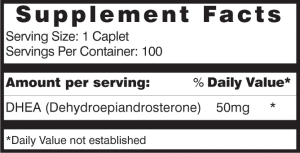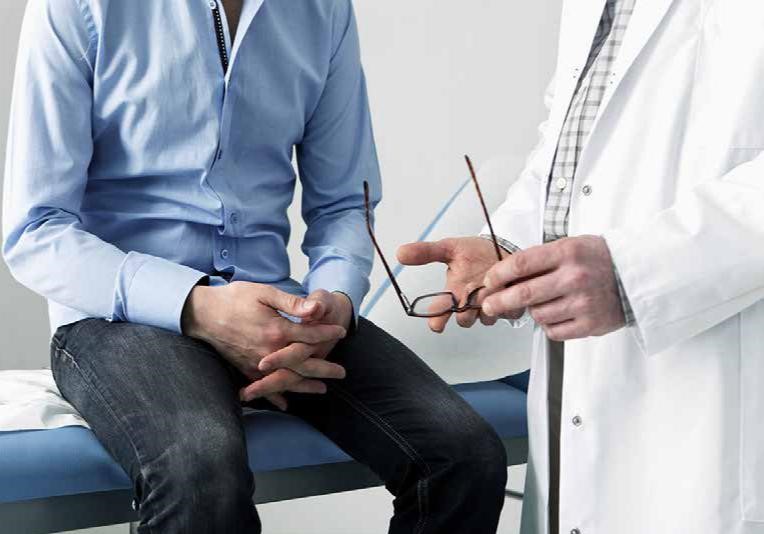When we talk about testosterone myths, this topic has its share of a bad rap as the “aggression” hormone that’s somehow the “root cause” of at least the majority of male-dominated social violence. While the absolutely invaluable evolutionary necessity of testosterone, along with its many evident positive effects, is indeed a primarily male-driven hormone that affects men in many of the ways we’ve previously discussed, it’s completely backwards logic to “blame” testosterone for the complex problem of societal violence (or the lack thereof for any absence of same).In the US, we have also been raised to view “Steroids” through the lens of sports abuse and cheaters watching East German Olympians in the 80s and 90s, issues with Pro Wrestlers and sad stories from steroid abusers like Lyle Alzado. Steroids have certainly seemed like a very unhealthy lifestyle choice.Things are different today as physicians and scientists have a much better understanding of the benefits of living with a fully functioning endocrine system. 100 years ago the average life span was 48 and today it is 78 years. Many areas of the body do not hold up over time as well as others and require assistance like eye glasses, hearing aids or Lipitor. The same is true with balancing and optimizing the endocrine system. We now understand that a properly balanced endocrine system leads to lower incidence of prostate cancer, stroke, heart attack and mortality.
Busted Testosterone Myths
So let’s take a clear-eyed look at a few of the testosterone myths that are at best based on specious reasoning and at worst, they’re almost completely devoid of scientific examination and study:
Testosterone Myths #1: Testosterone Increases Lead to Prostate Cancer
This proverbial “old wives tale” began with a single study all the way back in 1941 that has since been roundly and soundly disproved many times over (multiple studies). We now know that men with normal testosterone levels have a lower incidence of prostate cancer than men with low levels. We also know that men supplemented from
low testosterone levels to normal testosterone levels also have lower incidence of prostate cancer. If you are already undergoing treatment for a prostate condition, it’s always best to consult with your physician and inadvisable unless specifically guided to do so.
Testosterone Myths #2: Increased Testosterone Leads to Violent Behavior
There is absolutely no empirical scientific evidence whatsoever to suggest that an all-natural increase in your testosterone level will lead to any violent or anti-social behavior. In fact, recent studies have shown that healthy social assimilation in all males is strongly linked to higher levels of testosterone, in comparison with males with lower levels. Of course random acts of violence committed by males addicted to anabolic steroids (commonly referred to as “roid rage”) has contributed to the complete fallacy that a natural increase in testosterone is somehow connected to this unfortunately all too common side-effect of steroid drug abuse. To be perfectly clear- An all-natural increase in testosterone will have no negative effect regarding violent behavior and will almost certainly lead to a much greater possibility of pro-social behavior and positive social success in all males.
Testosterone Myths #3: Any Testosterone Increase Will Create Personal Social Conflict
Much like the previous example, this myth simply does not stand up under scrutiny. To the contrary, numerous scientific studies have shown that due to the measurable decrease in both concentration and libido associated with low levels of testosterone, men suffering from this condition are much more inclined to become socially frustrated and, as a result, are much more susceptible to bouts of clinical depression and accompanying depressive, anti-social behaviors.A properly high level of testosterone, on the other hand, leads to much more properly adjusted mood management and an overall more satisfied, successful and social male!
Testosterone Myths #4: Testosterone Treatment increases Cardiovascular Risk
A Swedish study tested the hypothesis that serum total testosterone and sex hormone-binding globulin (SHBG) levels predict cardiovascular events in elderly men. The study found that supplementing, and maintaining, testosterone reduces cardiovascular risks when the levels were maintained above 550ng/dl. The study also found negative correlation between testosterone levels are type 2 diabetes risk.
Contact us
If you’re seeking effective solutions for low testosterone levels, we’re here to help. Our specialized team is dedicated to addressing the unique needs of men dealing with low T. Whether you’re experiencing symptoms like fatigue, decreased libido, or mood swings, our tailored treatments are designed to restore vitality and well-being. Reach out to us today to schedule a consultation and take the first step towards reclaiming your optimal health. Don’t let low testosterone hold you back from living life to the fullest –
contact us today for personalized care and support.
5 Busted Myths about Testosterone Treatment
19 April,2023Hormone TherapeuticsHormone Therapeutics
April 19th, 2023
Posted In: Testosterone Therapy
Tags: aggression, anti-social, cardiovascular, death, depression, heart attack, prostate cancer, steroids, stroke, testosterone, testosterone myths, testosterone therapy, testosterone treatment, unhealthy, violence, violent
Leave a Comment
 When we talk about testosterone myths, this topic has its share of a bad rap as the “aggression” hormone that’s somehow the “root cause” of at least the majority of male-dominated social violence. While the absolutely invaluable evolutionary necessity of testosterone, along with its many evident positive effects, is indeed a primarily male-driven hormone that affects men in many of the ways we’ve previously discussed, it’s completely backwards logic to “blame” testosterone for the complex problem of societal violence (or the lack thereof for any absence of same).
When we talk about testosterone myths, this topic has its share of a bad rap as the “aggression” hormone that’s somehow the “root cause” of at least the majority of male-dominated social violence. While the absolutely invaluable evolutionary necessity of testosterone, along with its many evident positive effects, is indeed a primarily male-driven hormone that affects men in many of the ways we’ve previously discussed, it’s completely backwards logic to “blame” testosterone for the complex problem of societal violence (or the lack thereof for any absence of same).
In the US, we have also been raised to view “Steroids” through the lens of sports abuse and cheaters watching East German Olympians in the 80s and 90s, issues with Pro Wrestlers and sad stories from steroid abusers like Lyle Alzado. Steroids have certainly seemed like a very unhealthy lifestyle choice.
Things are different today as physicians and scientists have a much better understanding of the benefits of living with a fully functioning endocrine system. 100 years ago the average life span was 48 and today it is 78 years. Many areas of the body do not hold up over time as well as others and require assistance like eye glasses, hearing aids or Lipitor. The same is true with balancing and optimizing the endocrine system. We now understand that a properly balanced endocrine system leads to lower incidence of prostate cancer, stroke, heart attack and mortality.
Busted Testosterone Myths
So let’s take a clear-eyed look at a few of the testosterone myths that are at best based on specious reasoning and at worst, they’re almost completely devoid of scientific examination and study:
 Testosterone Myths #1: Testosterone Increases Lead to Prostate Cancer
Testosterone Myths #1: Testosterone Increases Lead to Prostate Cancer
This proverbial “old wives tale” began with a single study all the way back in 1941 that has since been roundly and soundly disproved many times over (multiple studies). We now know that men with normal testosterone levels have a lower incidence of prostate cancer than men with low levels. We also know that men supplemented from low testosterone levels to normal testosterone levels also have lower incidence of prostate cancer. If you are already undergoing treatment for a prostate condition, it’s always best to consult with your physician and inadvisable unless specifically guided to do so.
 Testosterone Myths #2: Increased Testosterone Leads to Violent Behavior
Testosterone Myths #2: Increased Testosterone Leads to Violent Behavior
There is absolutely no empirical scientific evidence whatsoever to suggest that an all-natural increase in your testosterone level will lead to any violent or anti-social behavior. In fact, recent studies have shown that healthy social assimilation in all males is strongly linked to higher levels of testosterone, in comparison with males with lower levels. Of course random acts of violence committed by males addicted to anabolic steroids (commonly referred to as “roid rage”) has contributed to the complete fallacy that a natural increase in testosterone is somehow connected to this unfortunately all too common side-effect of steroid drug abuse. To be perfectly clear- An all-natural increase in testosterone will have no negative effect regarding violent behavior and will almost certainly lead to a much greater possibility of pro-social behavior and positive social success in all males.
 Testosterone Myths #3: Any Testosterone Increase Will Create Personal Social Conflict
Testosterone Myths #3: Any Testosterone Increase Will Create Personal Social Conflict
Much like the previous example, this myth simply does not stand up under scrutiny. To the contrary, numerous scientific studies have shown that due to the measurable decrease in both concentration and libido associated with low levels of testosterone, men suffering from this condition are much more inclined to become socially frustrated and, as a result, are much more susceptible to bouts of clinical depression and accompanying depressive, anti-social behaviors.
A properly high level of testosterone, on the other hand, leads to much more properly adjusted mood management and an overall more satisfied, successful and social male!
 Testosterone Myths #4: Testosterone Treatment increases Cardiovascular Risk
Testosterone Myths #4: Testosterone Treatment increases Cardiovascular Risk
A Swedish study tested the hypothesis that serum total testosterone and sex hormone-binding globulin (SHBG) levels predict cardiovascular events in elderly men. The study found that supplementing, and maintaining, testosterone reduces cardiovascular risks when the levels were maintained above 550ng/dl. The study also found negative correlation between testosterone levels are type 2 diabetes risk.
Hormone Therapeutics aims to help people looking to improve and optimize their health through natural means or through the guidance of our physicians.
Don’t miss out our free weekly tips and news on Low T, hormone balancing, healthy living, nutrition and a lot more.
Want more?

Sign up today and Get our ebook, ‘Naturally Increase Your Testosterone Levels’ absolutely FREE.
4 Popular Testosterone Myths Revealed
14 October,2016Saleamp DesignSaleamp Design
October 14th, 2016
Posted In: Low T Info
Tags: aggression, anti-social, cardiovascular, death, depression, heart attack, prostate cancer, steroids, stroke, testosterone, testosterone myths, testosterone therapy, testosterone treatment, unhealthy, violence, violent
Leave a Comment
 Dehydroepiandrosterone (DHEA) is a naturally occurring hormone produced in the body. Secreted by the adrenal glands, it is precursor to other hormones and is transformed by the body into specific hormones once it reaches the target tissue. As a prohormone, most of it effects are related to its end products as opposed to DHEA itself.
Dehydroepiandrosterone (DHEA) is a naturally occurring hormone produced in the body. Secreted by the adrenal glands, it is precursor to other hormones and is transformed by the body into specific hormones once it reaches the target tissue. As a prohormone, most of it effects are related to its end products as opposed to DHEA itself.
DHEA is gaining traction as an anti-aging supplement. It is also being explored as a treatment for several of the health conditions associated with aging.
DHEA and its effects
DHEA is often touted as a “youth restoring” hormone because of its reputation for slowing down the age process, improving general energy levels and cognitive skills. Because of this, many see it as a solution to regulate the side effects of aging and hormone depletion.
DHEA supplementation has shown an increase in energy, cognitive concentration, greater muscle mass/retention and slowing down the progression of Alzheimer disease. DHEA has been shown to have an influence on erectile dysfunction and lack of sex drive. In addition, Men with low DHEA more often experience depression as well as higher risks for overall mortality, including heart failure and cardiovascular threats.
DHEA Decline with Age
Unfortunately, DHEA production declines as its importance increases. DHEA production reaches its highest point during the 20s, but as one grows older, the body’s DHEA production decreases, leaving as little as 20% of the healthy output by the time one reaches 70.
Since it is a precursor to other hormones, this decline leads to a corresponding effect in other hormones as well. Estrogen and testosterone synthesis, in particular, wane once the DHEA levels decrease. This brings forth several consequences for both sexes. In men, specifically, age-related DHEA decrease leads to a decline in testosterone secretion. This decline is compounded because of the larger role DHEA plays in the production of testosterone as we age.
DHEA Supplements and their Effects
From trials, DHEA supplements have been shown to increase muscle mass, strength and physical well-being in general. In addition, tests of increased concentration, in men and women, have been shown to improve sexual potency and mood, with women experiencing less menopausal symptoms after taking supplements. Overall, DHEA has been seen as an anti-aging supplement, providing bone and muscle strength, better moods and immune system and increased memory.
When tested on patients with diabetes and neurological disorders, DHEA was not seen to improve erectile function and potency in patients. It has also been shown to exhibit minimal side effects such as mild acne, swollen ankles and increased facial hair in some women.
The effect of long term treatment on cardiovascular conditions and hormone-dependent tumors has not yet been studied, or have yielded conclusive results.
DHEA Frontiers
DHEA supplements for anti-aging purposes are currently gaining traction. As a precursory hormone, it is seen by many as a way to regulate hormone balance within the body. In addition, DHEA’s reputation in increased bone and muscle strength, as well as energy, has many physicians exploring DHEA supplements and its effect on bone growth, depression, and other mood and cognitive disorders.
Hormone Therapeutics
Hormone Therapeutics specializes in endocrine and hormone-related treatment, and is committed to finding the best treatment for your well-being. If you’re curious about how DHEA supplements can improve you and your life, Hormone Therapeutics can provide the answers for you. Call us today!
Do You Need Help?
Hormone Therapeutics is the leading national company assisting men who want to get their lives back through Hormone Replacement and Testosterone Replacement therapy. Our local physicians are ready to treat you anywhere in the entire country. Hormone Therapeutics is pioneering an easier, cost efficient and more private way for you to work with our clinical advisors and physicians from the privacy of your home or office after your local physical exam confirms you have one of the symptoms of Low T.
Contact us today and our clinical advisors will work with you on a hormone therapy program that may include prescribed hormones, exercise, nutrition and sleep programs to reclaim your vitality.
DHEA Benefits and Frontiers
1 April,2016Saleamp DesignSaleamp Design
April 1st, 2016
Posted In: Health & Wellness
Tags: brain, brain fog, cardiovascular issues, Cialis, Dehydroepiandrosterone, depression, DHEA, ED, energy, erectile dysfunction, fatigue, hair loss, happiness, heart attack, low t, low testosterone, memory, muscle loss, muscle mass, sadness, sex drive, sexual function, stroke, supplements, testosterone, Viagra
Leave a Comment
World Health and the American Academy of Anti-Aging medicine have stated that after examining the research completed by the University of Texas Medical Branch at Galveston examining Medicare claims of 25,420 beneficiaries treated with testosterone therapy for up to eight years that, “testosterone therapy did not associate with an increased risk of heart attack”. The group also states that the study further showed that testosterone users with a higher probability of cardiovascular problems had a lower rate of heart attacks in comparison to equivalent patients who did not receive testosterone therapy.
No link between Testosterone and Heart Attack Risk
This is very exciting news to see an additional study show that testosterone therapy, under the proper guidance of a physician, lessens ones risk for heart attack according to this study. Go through our other blogs to find further analysis and studies and read for yourself on how testosterone therapy decreases the risk for heart attacks, strokes, prostate cancer and death.
(more…)
No Link between Testosterone Therapy and Heart Attack Risk According to World Health
8 February,2015Saleamp DesignSaleamp Design
February 8th, 2015
Posted In: Testosterone Therapy
Tags: cardiovascular, heart attack, heart attack risk, heart disease, low t, lower rate of heart attacks, problems, t therapy, testosterone therapy, university of texas, university of texas medical branch at galveston, world health
Leave a Comment
 Dehydroepiandrosterone (DHEA) is a naturally occurring hormone produced in the body. Secreted by the adrenal glands, it is precursor to other hormones and is transformed by the body into specific hormones once it reaches the target tissue. As a prohormone, most of it effects are related to its end products as opposed to DHEA itself.
Dehydroepiandrosterone (DHEA) is a naturally occurring hormone produced in the body. Secreted by the adrenal glands, it is precursor to other hormones and is transformed by the body into specific hormones once it reaches the target tissue. As a prohormone, most of it effects are related to its end products as opposed to DHEA itself. 

 When we talk about testosterone myths, this topic has its share of a bad rap as the “aggression” hormone that’s somehow the “root cause” of at least the majority of male-dominated social violence. While the absolutely invaluable evolutionary necessity of testosterone, along with its many evident positive effects, is indeed a primarily male-driven hormone that affects men in many of the ways we’ve previously discussed, it’s completely backwards logic to “blame” testosterone for the complex problem of societal violence (or the lack thereof for any absence of same).
When we talk about testosterone myths, this topic has its share of a bad rap as the “aggression” hormone that’s somehow the “root cause” of at least the majority of male-dominated social violence. While the absolutely invaluable evolutionary necessity of testosterone, along with its many evident positive effects, is indeed a primarily male-driven hormone that affects men in many of the ways we’ve previously discussed, it’s completely backwards logic to “blame” testosterone for the complex problem of societal violence (or the lack thereof for any absence of same). Testosterone Myths #1: Testosterone Increases Lead to Prostate Cancer
Testosterone Myths #1: Testosterone Increases Lead to Prostate Cancer Testosterone Myths #2: Increased Testosterone Leads to Violent Behavior
Testosterone Myths #2: Increased Testosterone Leads to Violent Behavior Testosterone Myths #3: Any Testosterone Increase Will Create Personal Social Conflict
Testosterone Myths #3: Any Testosterone Increase Will Create Personal Social Conflict Testosterone Myths #4: Testosterone Treatment increases Cardiovascular Risk
Testosterone Myths #4: Testosterone Treatment increases Cardiovascular Risk
